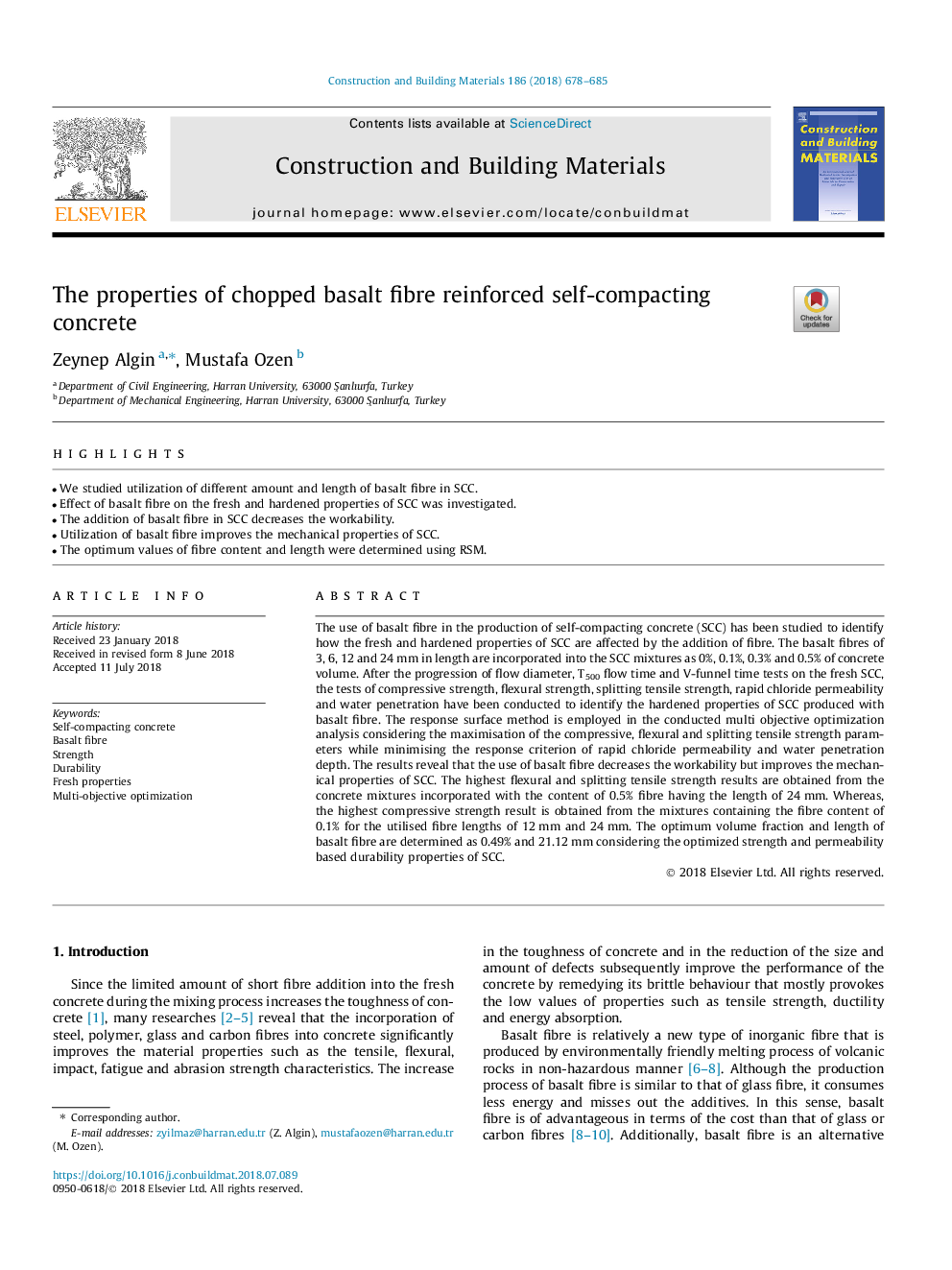| Article ID | Journal | Published Year | Pages | File Type |
|---|---|---|---|---|
| 6711762 | Construction and Building Materials | 2018 | 8 Pages |
Abstract
The use of basalt fibre in the production of self-compacting concrete (SCC) has been studied to identify how the fresh and hardened properties of SCC are affected by the addition of fibre. The basalt fibres of 3, 6, 12 and 24â¯mm in length are incorporated into the SCC mixtures as 0%, 0.1%, 0.3% and 0.5% of concrete volume. After the progression of flow diameter, T500 flow time and V-funnel time tests on the fresh SCC, the tests of compressive strength, flexural strength, splitting tensile strength, rapid chloride permeability and water penetration have been conducted to identify the hardened properties of SCC produced with basalt fibre. The response surface method is employed in the conducted multi objective optimization analysis considering the maximisation of the compressive, flexural and splitting tensile strength parameters while minimising the response criterion of rapid chloride permeability and water penetration depth. The results reveal that the use of basalt fibre decreases the workability but improves the mechanical properties of SCC. The highest flexural and splitting tensile strength results are obtained from the concrete mixtures incorporated with the content of 0.5% fibre having the length of 24â¯mm. Whereas, the highest compressive strength result is obtained from the mixtures containing the fibre content of 0.1% for the utilised fibre lengths of 12â¯mm and 24â¯mm. The optimum volume fraction and length of basalt fibre are determined as 0.49% and 21.12â¯mm considering the optimized strength and permeability based durability properties of SCC.
Keywords
Related Topics
Physical Sciences and Engineering
Engineering
Civil and Structural Engineering
Authors
Zeynep Algin, Mustafa Ozen,
